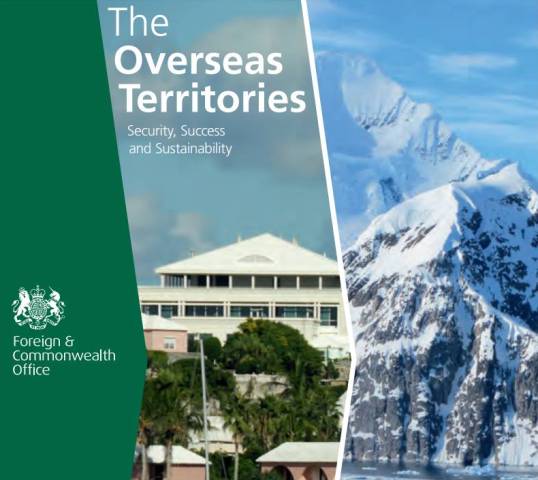 The UK Government published a White Paper on the Overseas Territories in 2012, setting out its overall approach to the Overseas Territories.[Source: FCO]
The UK Government published a White Paper on the Overseas Territories in 2012, setting out its overall approach to the Overseas Territories.[Source: FCO]
The Commonwealth is known for being an intergovernmental organisation with a flexible and informal character that has managed to realign itself to the demands of each historical period. The success of its survival is due to its ability to provide pragmatic responses to the challenges that it has faced historically, thanks mainly to having a decentralised and barely institutionalised structure. In this regard and in line with its flexibility, the Commonwealth should continue to identify what its major challenges are and devise the best possible solutions.
Currently, the Commonwealth is an intergovernmental organisation that, according to the criterion of the acceptance of new members, is considered to be of a closed or restricted nature, meaning that only a restricted number of international community states can be potential candidates, as only certain states can satisfy the pursuits and membership requirements of the organisation. Other than full membership, the Commonwealth does not plan to provide any kind of participation and, in this author’s opinion, this lack of foresight is in contradiction with its spirit of flexibility. Thus, one of the major issues that the Commonwealth should address is about allowing new avenues of participation, since different entities of the international community, not only the states, could be interested in taking on some kind of role within this organisation. In this sense, not all entities want, or can access, full membership, but ensuring their participation could mean that they would come to the table with new ideas or collaborate on common projects.
Unquestionably, the adoption of new forms of participation would make the organisation more flexible and provide it with greater openness and international projection. If, however, the Commonwealth’s member states fear that the opening of new avenues of participation implies a distortion of the very essence of the Commonwealth, I must point out that this would not necessarily happen, since the acceptance of new modalities of participation does not have to alter the closed or restrictive nature of the Commonwealth. As in the case of full membership, where there are some specific entry requirements, limited participation membership requirements could also be as restrictive as the members of the Commonwealth consider appropriate. In any case, the decision to accept a new member, whether with full or limited membership, is always discretionary and it is up to all of the members that are part of the organisation.
In addition to the states or organisations that could potentially be interested in having some kind of participation in the Commonwealth (as well as the Commonwealth possibly being interested in working with certain participants), currently there are territories that form part of the Commonwealth that clearly demand greater flexibility and therefore an opening up of other routes of participation that take their situation into account. Specifically, reference is made to two types of territories: the Crown Dependencies (CDs) and the British Overseas Territories (BOTs). At present, none of these territories can be accepted as a full member of the Commonwealth, since, despite meeting all of the Commonwealth accession criteria, they do not meet a basic condition, i.e. none is a subject of international law. Traditionally, states were the only recognised subjects of international law.
After World War II these subjects were broadened to include other kinds of actors. However, these actors, such as international organisations and individuals, do not enjoy full international subjectivity, and therefore they have a limited international capacity (in both their international rights and duties). That is, none of these territories is a sovereign state. However, most of these territories have a high level of self-government.
Therefore, to be consistent with the legal and political nature of these territories, the Commonwealth would need to grant them some kind of status that would enable them to participate (even if this is in a limited way), on a regular and ongoing basis, in the daily activity of the organisation.
Maria Mut Bosque is with the Faculty of Law, the International University of Catalonia, Barcelona, Spain.



